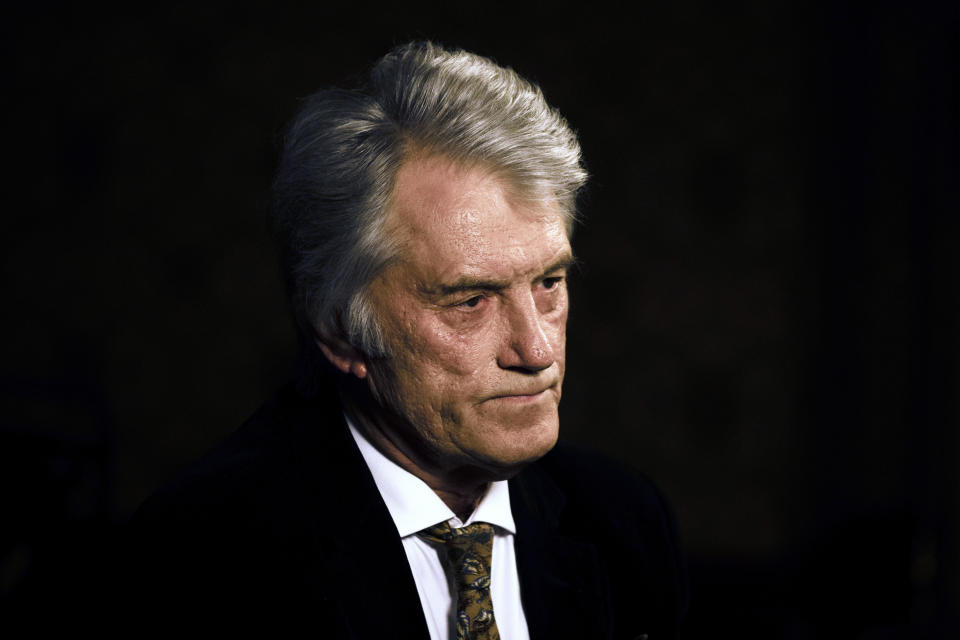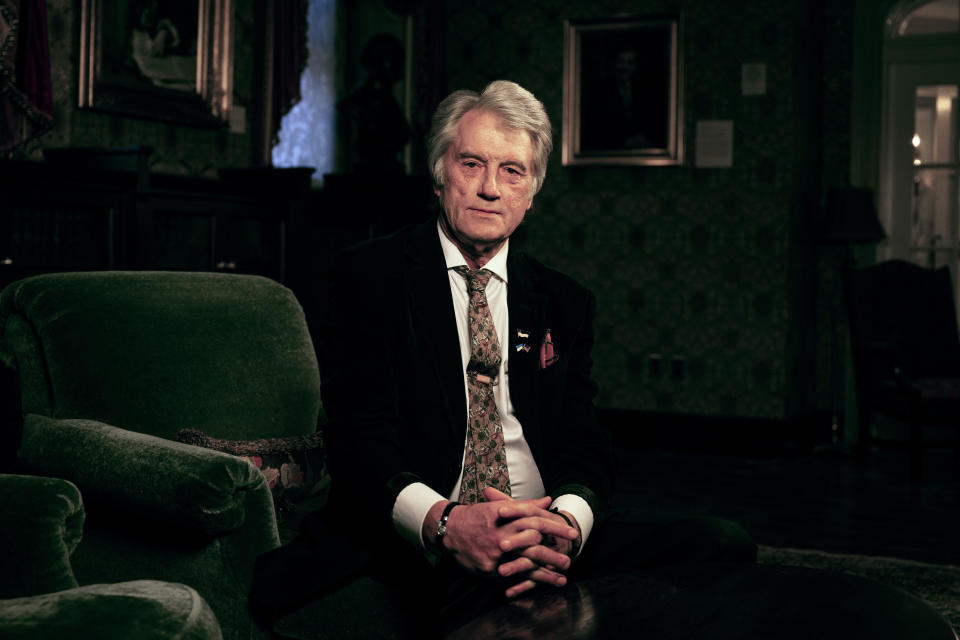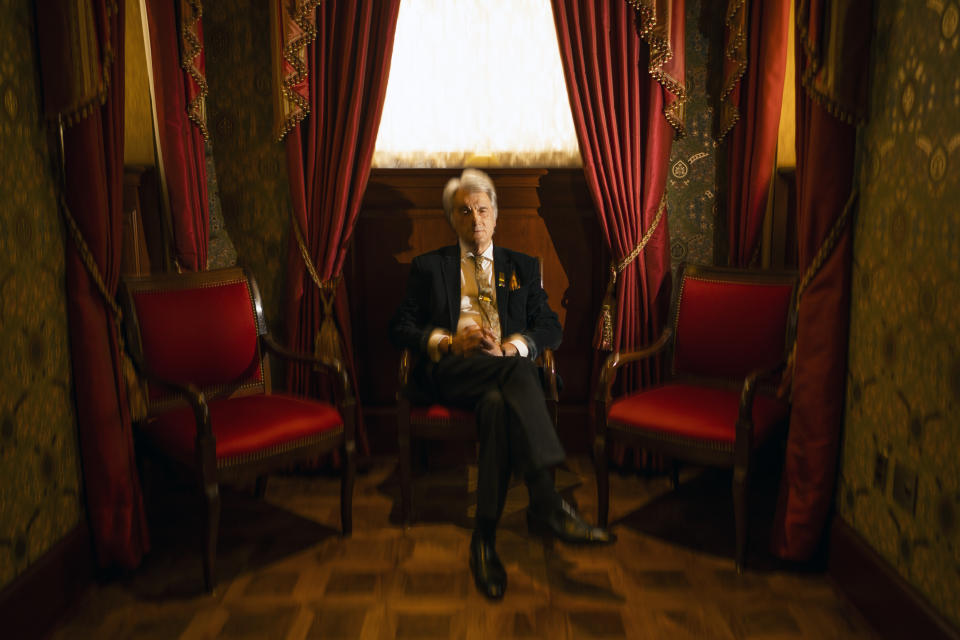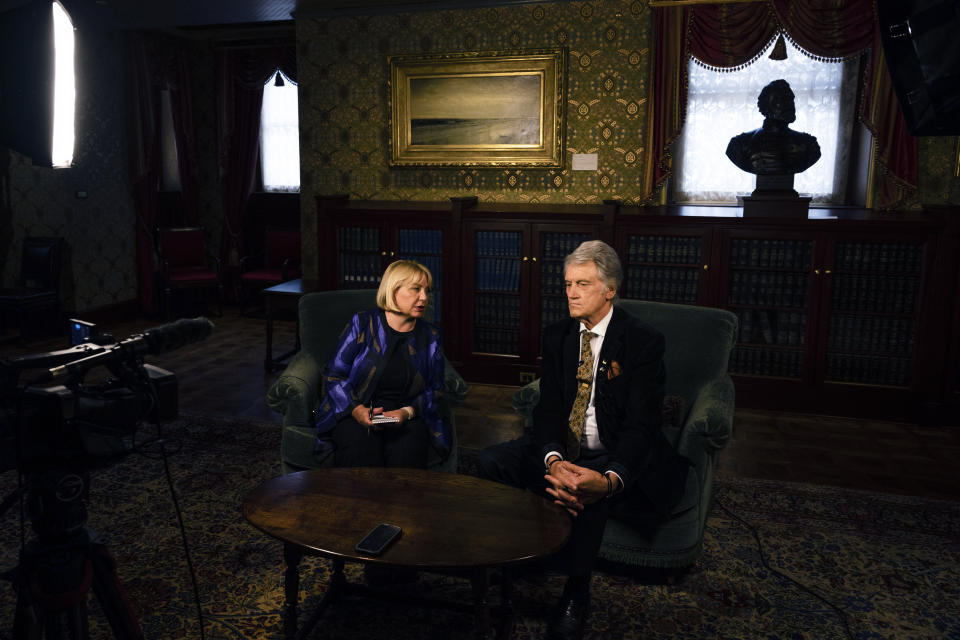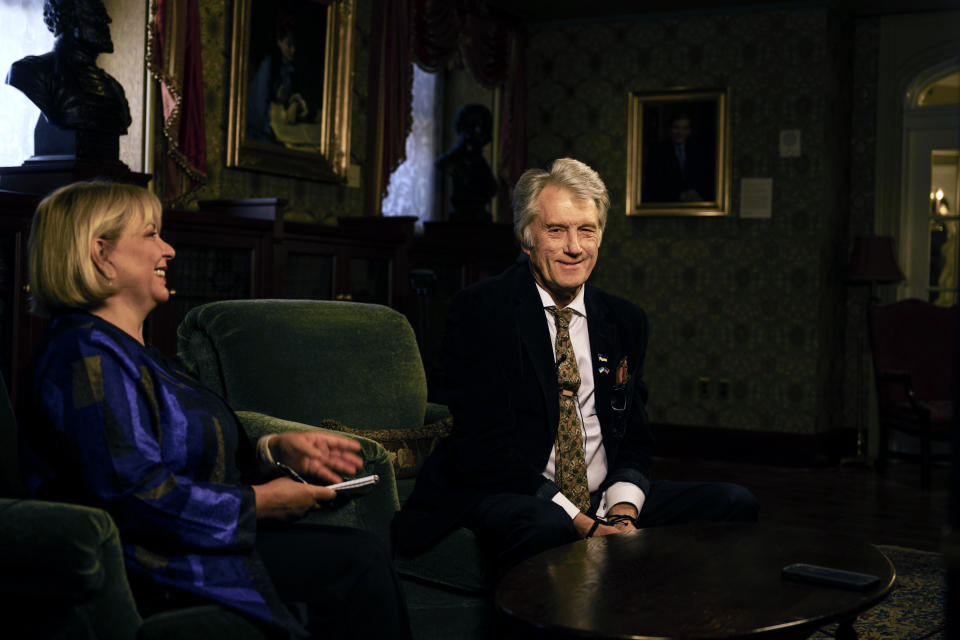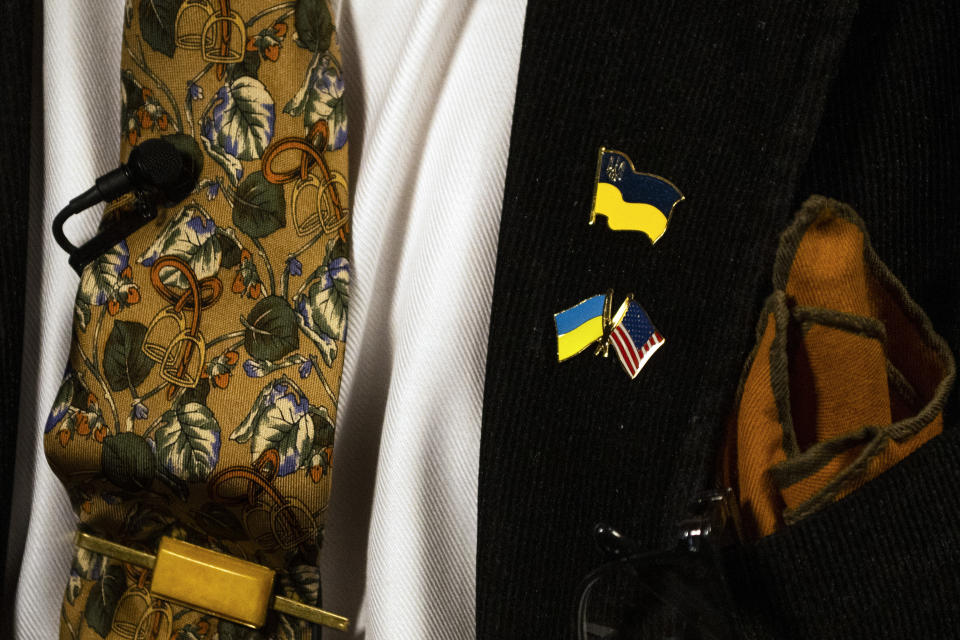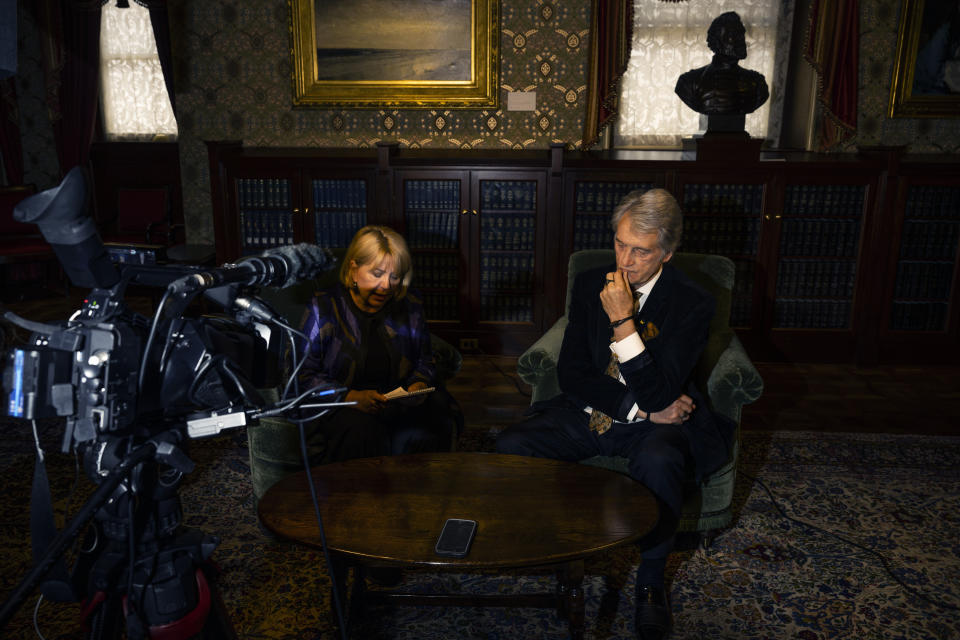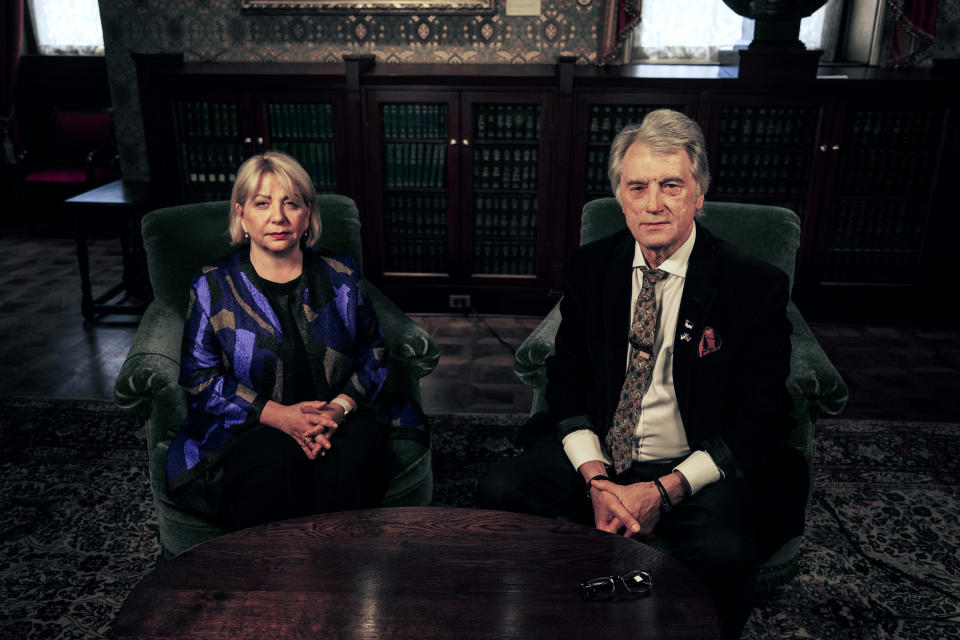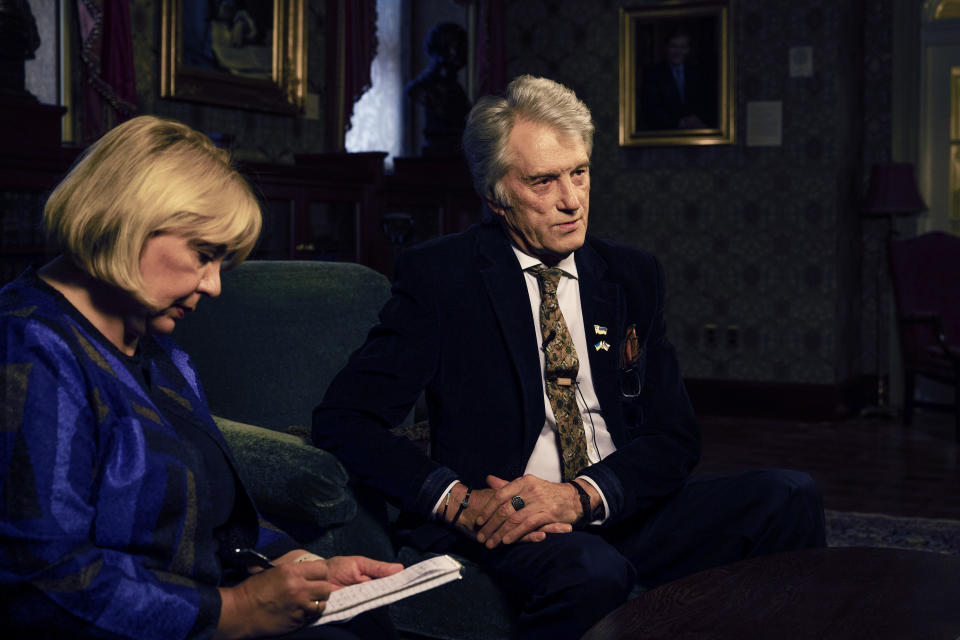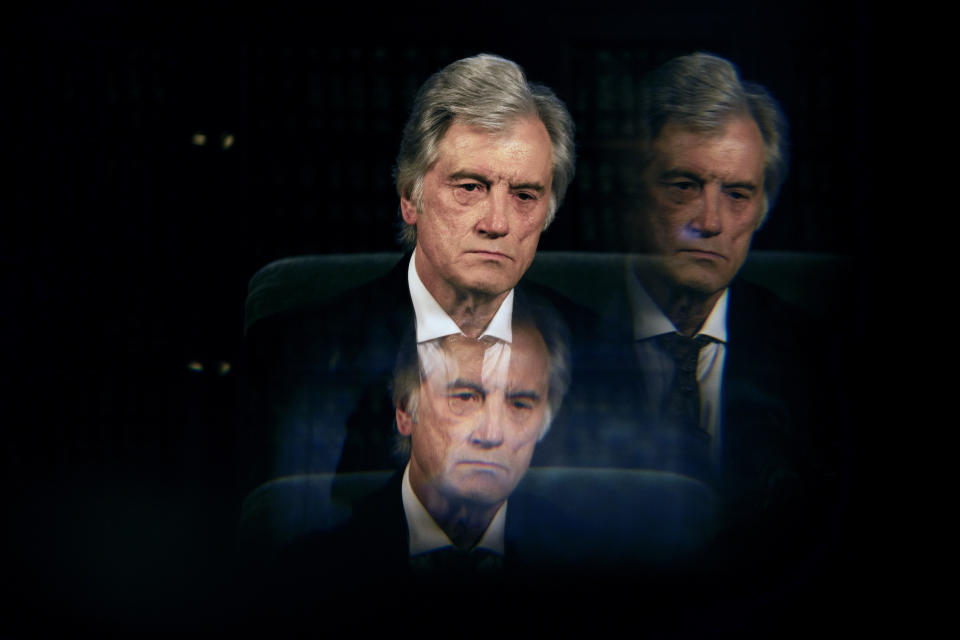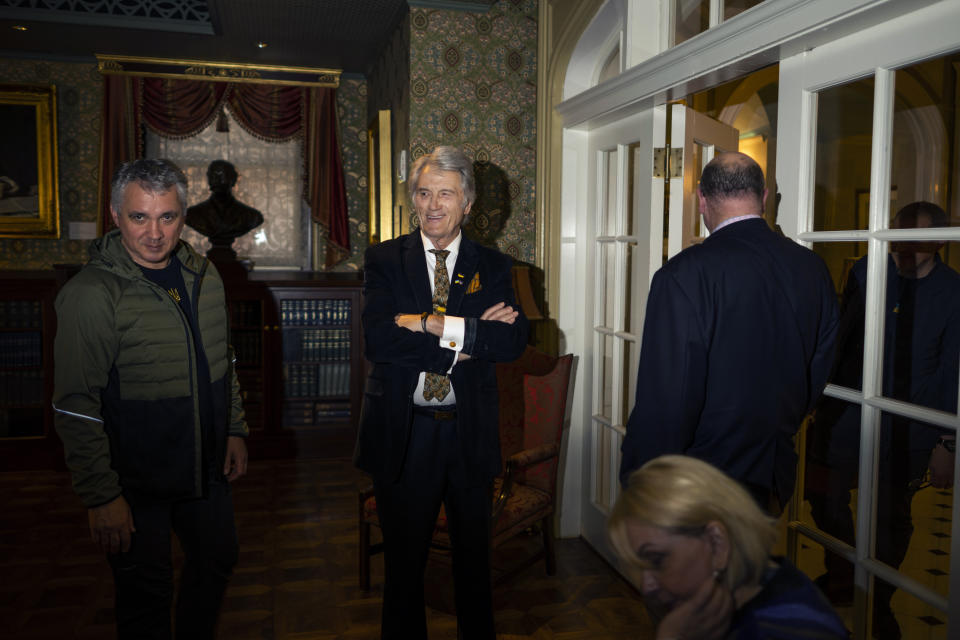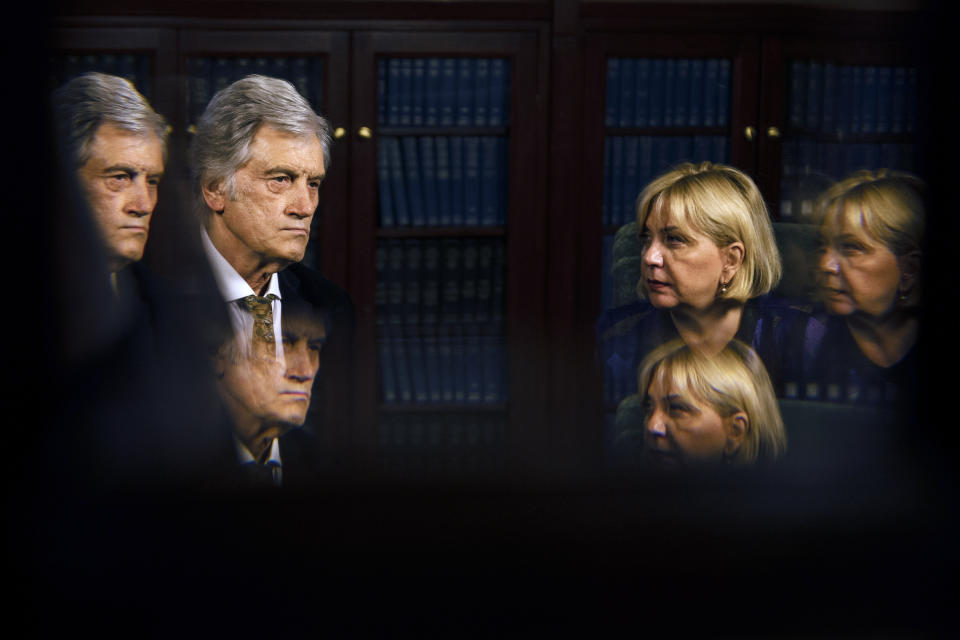Ex-Ukrainian president says US delay in war aid was 'colossal' waste, let Putin inflict more damage
- Oops!Something went wrong.Please try again later.
- Oops!Something went wrong.Please try again later.
PHILADELPHIA (AP) — Former Ukrainian President Viktor Yushchenko said the long delay by the U.S. Congress in approving military aid for his country was “a colossal waste of time,” allowing Russian President Vladimir Putin to inflict more suffering in the 2-year-old invasion and prolonging the war.
The severe lack of ammunition, which forced outgunned Ukrainian forces to surrender village after village on the front lines, also sowed concern among Ukraine’s other Western allies about Kyiv's prospects in repelling the Russian invasion, Yushchenko told The Associated Press in an interview Monday.
That sent a signal to Putin to “attack, ruin infrastructure, rampage all over Ukraine,” said Yushchenko, a pro-European reformer who sought to distance Kyiv from Moscow during his 2005-2010 administration.
“And, of course, this undermines the morale of those in the world who stand with and support Ukraine,” said Yushchenko, who was in Philadelphia to speak at a World Affairs Council event.
The delay “is not fatal” to Ukraine, but it forced Ukraine's war planners to revise the current year's campaign, he said.
Yushchenko has backed the handling of the war by Ukrainian President Volodymyr Zelenskyy, and has asserted that no Ukrainian politician would give up territory in order to end the war.
Yushchenko said it would be a “big mistake” for the U.S. and Europe to expect such a deal for peace, and would only embolden Putin to attack again.
It would, he said, “give Putin five or seven years to get stronger and then start this misery again.”
On the battlefield, Russia is pushing ahead with a ground offensive that opened a new front in eastern Ukraine's Kharkiv region and put pressure on overstretched Ukrainian forces.
Yushchenko urged Western allies to make political decisions faster to aid Ukraine in a fight that soldiers are waging every day around the clock.
“The front line is working 24 hours, it doesn’t take vacation," he said.
After the U.S. aid was approved last month, President Joe Biden said he was immediately rushing badly needed weaponry to Ukraine as he signed into law a $61 billion war aid measure for Ukraine. Without it, CIA Director Bill Burns has said, Ukraine could lose the war to Russia by the end of this year.
Still, only small batches of U.S. military aid have started to trickle into the front line, according to Ukrainian military commanders, who said it will take at least two months before supplies meet Kyiv’s needs to hold the line.
U.S. National Security Adviser Jake Sullivan said Monday that the Biden administration was “trying to really accelerate the tempo” of U.S. weapons shipments to Ukraine following the monthslong delay by Congress. “The level of intensity being exhibited right now in terms of moving stuff is at a 10 out of 10,” he said.
The U.S. secretary of state, Antony Blinken, arrived in Kyiv on Tuesday in an unannounced diplomatic mission to reassure Ukraine that it has American support.
Biden and Ukraine's allies in Congress pushed for months to overcome resistance from hard-right Republican lawmakers in the House over renewed American support for repelling Russia’s invasion.
Final action only came after Republican House Speaker Mike Johnson pushed past that opposition last month to bring Ukraine aid to a vote.
The funding impasse dated back to August, when Biden made his first emergency spending request for Ukraine. Since Russia’s February 2022 invasion, the U.S. has sent more than $44 billion worth of weapons, maintenance, training and spare parts to Ukraine.
Yushchenko acknowledged the huge losses that Ukraine has suffered in over two years of war, costing lives every day and forcing regular Ukrainians to join the fight. But he said that he was ashamed to hear arguments about “war fatigue” and that it shouldn't be an excuse to stop fighting.
“Every day we pay with our lives,” Yushchenko said. “The lives of children and women, the lives of Ukrainian soldiers. Our infrastructure is being destroyed every day.”
Despite his harsh criticism of the U.S. delay in approving the latest military aid, Yushchenko acknowledged that Ukraine has been able to recapture a significant part of the occupied territory thanks to Western support.
More gains can be achieved if the allies are united, Yushchenko said.
“For Putin, the main geopolitical challenge is freedom and democracy. And today he is using all available resources to show that the Western world is weak” and unable to coalesce, Yushchenko said.
He has said he believes victory for Ukraine is inevitable, given the sacrifice of the country's citizens to fight, and sees the war as a larger, defining battle to defend democracy from tyranny and imperialism.
Yushchenko came to power as a popular opposition leader in the 2004 Orange Revolution protests, beating Putin’s preferred candidate. As president he adamantly pushed to move Ukraine out of Moscow’s shadow and integrate more closely with Western Europe.
But his presidency was marked by political skirmishing that paralyzed government and prevented any of his promised reforms from being passed. He lost power amid a plunging Ukrainian economy during the 2008 global financial crisis and tensions with Russia highlighted by a clash over gas prices.
Yushchenko survived a dioxin poisoning during his 2004 election campaign, and several former Russian intelligence officers accused Moscow of being behind the poisoning.
The poisoning forced Yushchenko to temporarily abandon campaign activities in the midst of Ukraine’s hotly contested presidential race, and severely disfigured his face. But it also earned him the sympathy of many Ukrainians. He has said he subsequently underwent more than two dozen surgeries.
___
Arhirova reported from Kyiv, Ukraine. Associated Press writer Marc Levy in Harrisburg, Pennsylvania, contributed to this report.
___
Follow AP's war coverage at https://apnews.com/hub/russia-ukraine
